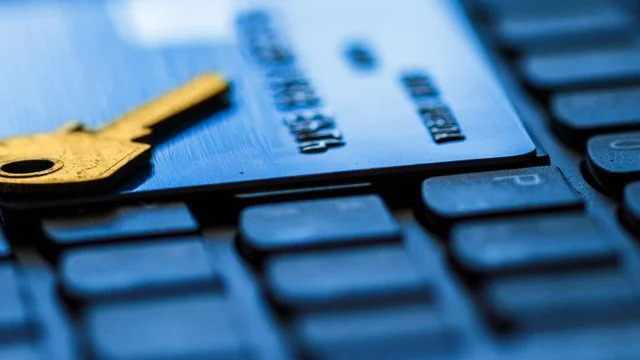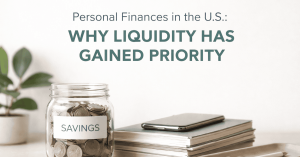Online shopping has revolutionized the way we purchase goods and services. In the United States, it’s never been easier to buy almost anything with a few clicks, and credit cards have become the preferred payment method. But as convenient as online shopping is, it comes with its risks—fraud, data breaches, and unauthorized transactions.
Understanding how to use credit cards effectively can help protect your financial health and provide peace of mind when shopping online. This guide will delve into how credit cards offer protection for online purchases and how you can maximize these benefits for safer transactions.
Understanding credit card protections in online shopping

One of the biggest advantages of using a credit card for online purchases is the multiple layers of protection they provide. Credit cards in the US are built to safeguard the consumer, and these protections range from fraud detection to purchase insurance. The Fair Credit Billing Act (FCBA) limits consumer liability for fraudulent charges to just $50, and most major credit card issuers even go beyond that by offering zero liability for unauthorized transactions.
Additionally, credit cards often offer dispute resolution services. If the product you bought online arrives damaged, is not as described, or doesn’t arrive at all, many credit card companies can help you reverse the charges. This chargeback process is a huge benefit when dealing with online merchants, especially those with whom you’re not familiar. Credit cards also sometimes provide extended warranties and price protection, meaning you can shop confidently knowing you have backup if something goes wrong with your purchase.
Lastly, credit cards are not directly linked to your bank account, unlike debit cards. This separation offers an added layer of security; if a fraudster gets your debit card details, they could potentially drain your bank account, causing a cascade of financial issues. However, with a credit card, your funds remain untouched while the credit card company investigates the issue.
Credit monitoring and fraud alerts
One of the key ways to use credit cards to protect online purchases is by setting up credit monitoring and fraud alerts. Most credit card issuers in the US provide real-time monitoring of transactions and will alert you to any suspicious activity. These alerts can be sent via SMS, email, or push notifications on a mobile app, allowing you to take immediate action if something doesn’t look right. Setting up these alerts is one of the easiest steps to protect yourself from fraud, and they can usually be customized to your preferences.
Some credit cards also come with built-in fraud detection tools. These tools analyze your purchasing behavior and flag any transactions that seem out of the ordinary. For example, if you typically make purchases in your home state and suddenly there is a transaction from a different country, your credit card issuer might contact you to confirm whether the transaction is valid. This proactive monitoring is an effective way to stay on top of your credit card activity.
In addition to credit card issuer alerts, it’s wise to sign up for third-party credit monitoring services. These services can track your credit reports across major bureaus and alert you to any new inquiries, accounts, or changes to your credit. By keeping tabs on your credit activity, you’ll be better equipped to catch any fraudulent activities that could impact your financial standing.
Using virtual credit cards for safer online transactions
One of the more advanced ways to protect your online purchases is by using virtual credit cards. A virtual credit card is a temporary credit card number that you can use for online transactions, linked to your actual credit card account. These virtual cards can be set with spending limits, single-use restrictions, or expiration dates, making them a fantastic option for minimizing fraud risks. If someone intercepts the virtual card number, they will have limited time and ability to use it, keeping your primary credit card safe.
To get started with virtual credit cards, you should check with your credit card issuer to see if they offer this feature. Many major issuers and third-party financial apps provide virtual card options, and setting one up is typically straightforward. Once you generate a virtual card, you can use it in place of your actual credit card number during the checkout process on online stores. The purchase will appear on your regular credit card statement, but your real credit card number remains hidden and protected.
Virtual credit cards are particularly useful for single purchases or subscriptions. If you are unsure about a particular online retailer or are signing up for a subscription that you may want to cancel later, a virtual card allows you to limit your exposure. For example, you can set a virtual card with a low spending limit or make it valid for only one transaction. If a fraudulent attempt is made, the virtual card will likely be declined, saving you from potential losses.
Tips to ensure safe online shopping with credit cards
While credit cards offer built-in protections, there are additional steps you can take to enhance your online shopping security. Here are some tips to help you use credit cards more safely:
- Shop only on secure websites: Look for “https” at the beginning of the web address and a padlock symbol in the browser bar. This indicates that the site uses encryption to protect your information.
- Avoid using public Wi-Fi for transactions: Public networks are less secure and can be easily hacked. If you need to make a purchase while on the go, consider using a mobile data connection or a Virtual Private Network (VPN) for a safer transaction.
- Use strong, unique passwords: Make sure your online shopping accounts are protected with strong passwords that are not used on other sites. Adding two-factor authentication (2FA) to your accounts can provide an extra layer of security.
- Monitor your statements regularly: Even with alerts set up, it’s a good idea to review your credit card statements manually each month. This allows you to catch any unauthorized transactions that might have slipped through.
- Set up spending limits: Some credit card issuers allow you to set spending limits for online transactions. This can prevent large fraudulent purchases and help you stay within your budget.
- Keep your credit card information private: Be cautious about sharing your credit card number, especially over the phone or email. Ensure the person or business requesting it is trustworthy before disclosing any details.
Following these guidelines can significantly reduce your risk of online fraud and ensure that your credit card is working to its full protective capacity.






